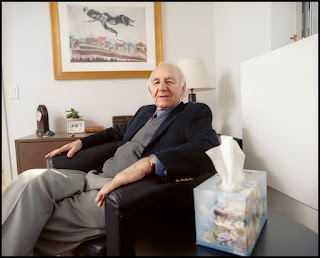Literature Review #4
Visual
Citation
Wells, Christine E et al. “Déjà vu experiences in anxiety.” Memory (Hove, England), 1 Nov. 2018.
Summary
This study demonstrates a clear connection between anxiety and déjà vu. An online questionnaire was given to a total of 352 participants and of these, 153 participants reported having diagnosed clinical anxiety whereas 199 participants did not have high levels of anxiety. A series of tests were done to ensure that the anxiety group was significantly more anxious than the control group. The questionnaire consisted of five sub-sections: 1. Demographics; 2. Questions regarding anxiety; 3. General knowledge about déjà vu and any notable experiences; 4. Several tests to measure levels of anxiety, depression, stress, and dissociative experiences; and 5. Questions about déjà vu experiences concerning the participants’ anxiety. After all the questionnaires were collected, Wells and her team calculated the means, standard deviations, and most importantly p-values to show if the results were significantly different. Regarding the frequency of déjà vu, “The Anxiety Group reported a higher frequency of déjà vu experiences over the past month (M = 2.94, SD = 2.70) compared to controls (M = 2.30, SD = 1.86; t256.66 = 2.51, p = 0.01, d = 0.28; Figure 2)” (Wells et al., Déjà). The p-value of 0.01 indicates that the difference between the two groups was statistically significant and proves that the anxiety group had a higher frequency of déjà vu experiences. The anxiety group also reported déjà vu to cause undue distress compared to the control group, showcasing that déjà vu has an effect on people with anxiety. Especially in periods of high anxiety or stress, the anxiety group reported having more frequent and intense déjà vu during these periods. Not only did the anxiety group have intense déjà vu, but they also felt an influx of emotions such as anxiety, stress, and confusion. However, some participants felt positive emotions such as curiosity, excitement, and nostalgia. Other participants felt all the emotions stated at once.
Author
Christine E. Wells: School of Social and Health Sciences, Leeds Trinity University, Leeds, UK
Akira R. O’Connor: School of Psychology and Neuroscience, University of St Andrews, St Andrews, UK
Chris J.A. Moulin: Université de Bourgogne
Key Terms
Anxiety - a mental health disorder that includes feelings of persistent worry and fear about everyday situations that can cause trouble in one’s daily activities.
Memory - a key part of the brain where information is encoded, stored, and retrieved when needed
Three Quotes
“The Anxiety Group reported a higher frequency of déjà vu experiences over the past month (M = 2.94, SD = 2.70) compared to controls (M = 2.30, SD = 1.86; t256.66 = 2.51, p = 0.01, d = 0.28; Figure 2)” (Wells et al. 12).
“‘I become very frightened and as if I am stuck in the room in which I am experiencing it’” (Wells et al. 14).
“‘...it makes me feel like I’m special because I’m experiencing something extraordinary’” (Wells et al. 14).
Value
This study allows me to make connections between the déjà vu phenomenon and anxiety. Furthermore, it allows me to explore the emotional connection individuals have with déjà vu and how it affects them.


Comments
Post a Comment